Sarah Davis is attempting to make history, facing down her fears to become the first woman to paddle the length of the Nile starting at its source in Rwanda.
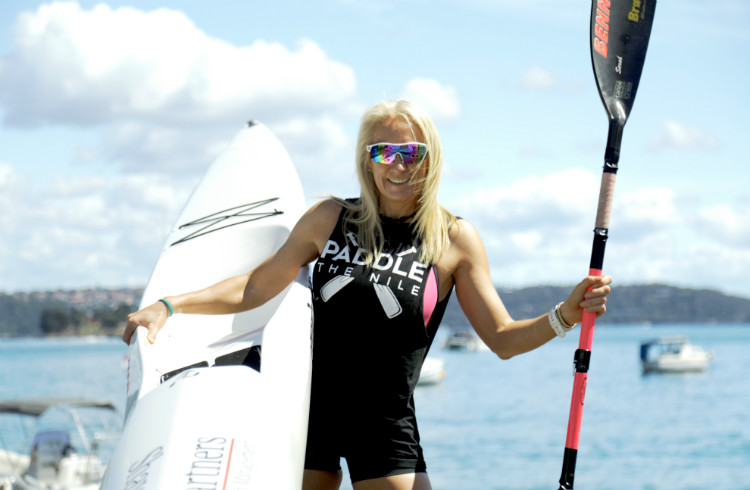 Photo © Paddle The Nile
Photo © Paddle The Nile
Listen Now
Alongside delivering our fortnightly World Nomads destination podcast we can now share bonus episodes shining the spotlight on amazing people doing amazing things.
What's in the Episode
Hosts Kim and Phil talk in the studio to Sarah Davis, paddler extraordinaire!
00:09 Intro
00:49 Sarah tells us how she came up with the idea.
02:12 How did Sarah get into Kayaking
04:03 Who is joining Sarah for the challenge
04:51 Travel warnings
07:12 What has Sarah learned from the prep courses
10:27 Where is the wiki on this?
11:58 Details on how the challenge is funded
12:59 Sarah's fear of snakes
14:49 Tracking Sarah's progress
Who's On the Show
Sarah Davis has taken a wilderness survival course and a self-defense course in preparation for her challenge to be the first woman to paddle the length of the Nile.
At 6,853km, there will be endless challenges including traveling through some political problematic areas yet, her greatest fear is snakes.
“I’ve got a massive phobia of snakes. Terrified. And when I went to Uganda we were out doing some kayaking, and it was just in between the dams, so it was just a practice and get into it. The guide was taking me out and he said, "Oh look over there," and I said, "What's that?" 'cause I just see something moving, and he said, "It's a snake." And he starts paddling towards it, and I'm like, "Mate what are you doing?" He said, "It's alright. They'll try and get in the kayak but they can't get up." No, we're going in the opposite direction, thanks very much.” Sarah Davis
There will be plenty of places and opportunities to check on Sarah’s progress including the Paddle the Nile website.
On Instagram @paddlethenile and Facebook Paddle the Nile.
If you would like to offer
If you know of an Amazing Nomad we should be talking to, then please email us at podcast@worldnomads.com
Resources & Links
"Where is the Wiki: How do you prepare for something that has never been done before?" By Sarah Davis in our Explore section.
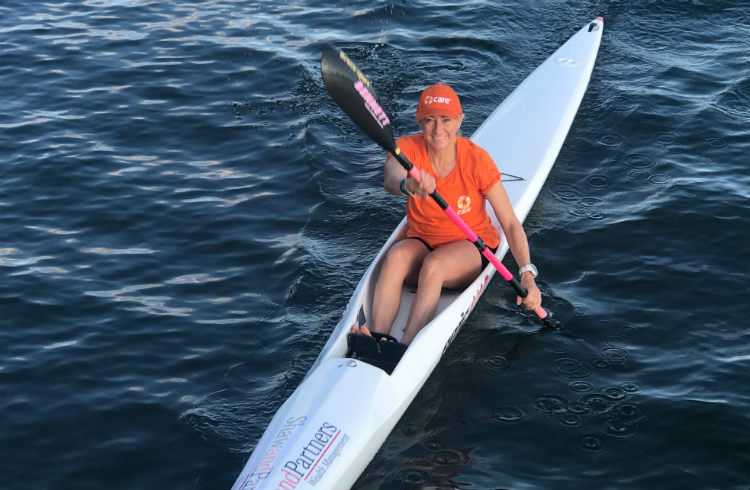
Scholarships Newsletter: Sign up for scholarships news and see what opportunities are live here.
Want to Talk to us?
We want to hear from you! If you have any travel insurance questions to Ask Phil, want to give us feedback on the episode, or have suggestions for topics you'd like us to cover, email us at podcast@worldnomads.com
Sign up for Podcast News
Explore your boundaries and discover your next adventure with The World Nomads Podcast. Hosted by Podcast Producer Kim Napier and World Nomads Phil Sylvester, each episode will take you around the world with insights into destinations from travelers and experts. They’ll share the latest in travel news, answer your travel questions and fill you in on what World Nomads is up to, including the latest scholarships and guides. The World Nomads Podcast is not your usual travel Podcast. It’s everything for the adventurous, independent traveler. Don’t miss out. Subscribe today.
Speaker 1: The World Nomads Podcast bonus episode. Hear amazing nomads sharing their knowledge, stories, and experience of world travel.
Phil: Yeah, it's not enough delivering you our fortnightly World Nomads Destination podcasts because, while there are so many great destinations in the world, there are equally some amazing people doing amazing things within it.
Speaker 3: So each fortnight, we're going to bring you an extended interview with an amazing world nomad as bonus episodes, and we're kicking off with Australian Sarah Davis. Now, she's preparing to be the first [00:00:30] woman to paddle the length of the Nile.
Phil, I'd like you to meet Sarah Davis!
Phil: Hello, Sarah. Thanks for coming in. It's fantastic to see you.
Sarah Davis: Thanks, Phil. It's great to be here.
Phil: Especially when we know what you're about to undertake.
Speaker 3: Yes, Sarah is about to paddle the Nile. Where did you come up with such a harebrained scheme?
Sarah Davis: Look, it was something, I'd seen a couple of people who'd done some first, and I was at this point where I was really happy with life and life was great, but [00:01:00] it was just that still something missing and that fulfillment and that sort of need for more. Anyway, so I saw a couple people who'd done, first, one was Damien Rider who paddled a prone board from Coolangatta to Bondi and was the first to do it. Yeah. And then Helen Skelton, she's a TV presenter in the UK and she kayaked the Amazon.
Neither of them was sort of, that wasn't their primary sport or anything like that and it just gave me this[inaudible 00:01:27] wow, how good would that be to do a first? [00:01:30] And because they weren't your classic sort of adventurers, I said, "Well maybe I could do something like this." So then I started researching as to what it could be, I really wanted it to be paddling-based 'cause that's my sport.
Speaker 3: Yeah, we can tell by your arms. It's nicely defined.
Phil: I used to say when I was going to the gym a few years ago, and they'd say, "What's your goal?" I
Speaker 3: So, [00:02:00] let's go back then to why you have these great arms. You're a kayaker. But you've competed around the world?
Sarah Davis: Yes, so I got into kayaking through the surf club. So I joined off on a surf club and I've been a member there and I started getting into the competing side. Started on the boards, and then got onto the surf skis. And running used to be my sport, but I've sort of got arthritis in the hip, then I blew my meniscus, and it was like, "Okay, I need [00:02:30] something else." And that's when I really got into the kayaking and the surf skis and went from doing all the clubby sort of stuff to then doing more of the ocean races because they tend to be longer and I'm more of an endurance athlete and I like that. So-
Speaker 3: Competitive girl too. [crosstalk 00:02:46]
Sarah Davis: I'm really competitive sometimes, not smart always. So yeah, I love it. It's been, doing it here in Sidney, out on the ocean, in the harbor, it's just the most spectacular place [00:03:00] to go and train so it doesn't make it too difficult.
Speaker 3: And none of the obstacles that you would expect in the Nile, Phil?
Phil: Fair enough. Can I just say, for people listening, what a clubby is? We have surf lifesaving clubs here. So these are volunteer surf lifesavers. Many of you would have seen the TV program "Bondi Rescue", the guys in the blue things, they're the professionals, the blacks
Speaker 3: Yeah, it is very, part of Australian culture isn't it?
Phil: It is, I'm
Speaker 3: Good one. So, you're a competitive kayaker about to pedal the Nile, and the first woman to do so. But you'll be with a team.
Sarah Davis: Yeah, there'll be people with me all the way. I'll be the only one doing it from start to finish, and the teams will mix, partly dependent on [00:04:00] the kind of waters that we're going through. So you've got some big rapids through a wander in Tanzania, and then also in Uganda. So we'll be rafting through those, so you've got a team of people in your raft. Then once you get through there, well you've got Lake Victoria in between, which we'll be kayaking. And then through South Sudan, Sudan, and Egypt, it's then kayaking all the way there. And there I'll have, either you know guides with me, security, or local paddlers as well. So when I went to [00:04:30] Sudan and Egypt last year I got to meet some of the kayakers there and they took me out paddling. They were amazing. And quite a few of them came to be part of it, which I really wanna have local people involved with it all the way. You know it's really much a shared experience.
Phil: Well first out, South Sudan, I think there's probably still a travel warning out on there. How have you managed to get around that?
Sarah Davis: Look, that's still looking at the logistics around that one, because it's going through significant conflicts, [00:05:00] so getting intelligence reports, speaking to people who do security on the ground as to whether it will be safe enough to go through there, or how far through. I might be able to get to Juba or a little bit North of Juba and so, you know, I know the North is particularly problematic that we might have to miss a section. 'Cause this isn't a doing it at all costs, there's the safety. Not just my safety, but people are coming along with me, I'm going to think about them as well so, you know, things can change there so quickly, [00:05:30] so it's going to be a constant monitoring. If South Sudan is a complete no-go, you know, things change, then once we sort of
Phil: Fair enough. I thought you were gonna say you were gonna get on a rowing machine in the back of a car while the car moves.
Sarah Davis: That's not a bad idea.
Phil: Not a bad idea though. [crosstalk 00:05:57]
Speaker 3: So what kind of preparation do [00:06:00] you undertake to do something as, we obviously know about for people listening, how many kilometers?
Sarah Davis: 6,853. Yeah.
Speaker 3: So the prep.
Sarah Davis: The prep, actually, a lot of the prep is
Phil: So what have you learned from those? What's the most amazing thing you've picked up from those courses? Like the wilderness course.
Sarah Davis: The wilderness course, one was just, you know, [inaudible 00:07:15] just being out in the bush. Lighting fires, little things that you can take to light fires if it's where you haven't got matches, you know. If you are in a survival mode, taking some cotton wool and some Vaseline you can, with your flint, you can start a fire. [00:07:30] So there was a lot of that. The signaling, navigation, I haven't done any navigation since I did my [inaudible 00:07:36] brown water at school. So something like the compass, I remember this, I don't remember how to use it. So I did that. They taught fishing, and the guys are great, so it was the Australian Survival Instructors. [inaudible 00:07:49] and they'd actually done some research to see what are the main fish on the Nile, and they would also teach me like how to go about you know, the best laws and baits and ways to fish. [00:08:00] I had no idea. So that was really really valuable. So there was a lot from that. Just, you know, getting used to it. Being out on a sleeping mat and sleeping [inaudible 00:08:10] and-
Speaker 3: How are you going to eat?
Sarah Davis: Look, there'll be some food taken with us. Lots of rice and pasta then sauced on the way. You know we'll be passing past villages and things like that, so as much as possible saucing it likely. And then taking some [00:08:30] with me. Certainly, through South Sudan we'll probably be taking more of the freeze-dried expedition foods, just to be able to get through there as quickly as possible.
Speaker 3: Reduce the risk of getting
Phil: How many people are going with you? At any one time, how big's the-
Sarah Davis: The most will probably be [00:09:00] five of us at any one time. But it will vary. And there will also be, so I'll have an assistance company that I'm working with as well. You know, people to check in with each day and who will, if there's an issue, to get the cavalry coming in and to get medevacs if we need medevacs. So there's a lot of work to be done on setting your riding procedures each day. These are the check-ins, this is when we do it, this is how we do it. [00:09:30] This is how we deal with an emergency, this is our escalation procedures, every day knowing this is where we're going, this is our exit points, this is the nearest medical center, all of that. Everyone buys into it, yep, this is the plan for the day and this is how we're gonna execute it.
Speaker 3: So you're not just [inaudible 00:09:46] kayaking, and let's go? None of that? No.
Sarah Davis: So there's a lot of planning, a lot of planning involved. You know but I love that, I'm a project manager and risk manager so it's kind of nice to use my work skills [00:10:00] for a personal project.
Phil: Is there anyway, I lost the people who contacted us, are trying to bicycle ride from Alaska to Tierra del Fuego. Will ride 'yak across Mongolia or something like that. Is there a messenger book group of friends where you can reach out?
Sarah Davis: We chat.
Phil: And where do you learn this stuff from? Do you have to start from the beginning?
Sarah Davis: As I've said before, where's the wiki on this? There isn't one. And there really isn't. And it's just being, when [00:10:30] I came up with the idea, I said, "Okay, I know no one's done this, and I love traveling to Africa, it's kayaking, it was just that ultimate [inaudible 00:10:38] I went, right, this is what I wanna do." So that was sort of the easy bit. The next bit was how. So it was looking at books that had sort of been written. So there was a chap called Hendrik Coetzee, and I don't know if I've said his name right there, but he-
Speaker 3: You're in great company with pronunciations.
Sarah Davis: He had a great, with Pete Meredith, they did a sort of scene navigation. So part rafting, [00:11:00] part just by normal boat, of the Nile. So I read his book, and then actually got to speak to Pete Meredith and he's been advising me on the trip. As someone who was based in Uganda, who's a rafting guide and has worked with a lot of expeditions and some of the things that [inaudible 00:11:17] go into with the kayakers in places like the Congo. He was a huge source of information. That was my starting point. Well how long would this take, and what would it take? And sort of then gradually built the plans out and just did [00:11:30] more research and went to Uganda on sort of a bit of
Speaker 3: So are you funding this yourself or are you sponsored?
Sarah Davis: Part and part. So I part self-funded and part sponsored. So I'm getting the sponsors on board at the moment.
Phil: Where [00:12:00] can they contact you if they-
Sarah Davis: They can contact me at info@paddlethenile.com or, that's probably the easiest way, is to drop me an email.
Phil: Great. Let's see if we can get somebody [crosstalk 00:12:10]
Sarah Davis: Yeah, that'll be-
Phil: What's the thing about the whole trip that scares you the most? What are you most worried about?
Sarah Davis: There are so many things honestly. One, the rapids, and I think going on the surfboard to rescue technician course was great 'cause I learned so much but it also made me realize I hadn't even thought about some of the risks
Phil: [00:13:00] Let's get out of Africa.
Sarah Davis: And when I went to Uganda on the [inaudible 00:13:05] we were out doing some kayaking, and it was just in between the dams, so it was just a practice and get into it. The guide was taking me out and he said, "Oh look over there," and I said, "What's that?" 'cause I just see something moving, and he said, "It's a snake." And he starts paddling towards it, and I'm like, "Mate what are you doing?" He said, "It's alright. They'll try and get in the kayak but they can't get up." No, we're going in the [00:13:30] opposite direction, thanks very much. Hate them. Hate them, hate them, hate them. And there's a pretty good chance we'll see some there. Maybe it's just that, you know, you've gotta throw yourself into your fears to overcome them.
But then there's also the weather, it can get very hot. Potentially hostile situations. So there's-
Phil: What did they say you do about the crocs? Aggressive crocodiles, what do you do?
Sarah Davis: Hit them.
Speaker 3: I was gonna say that.
Phil: Hit 'em with a paddle.
Sarah Davis: That's happened. So when they're being charged in a raft before. [00:14:00] And literally just someone's taking a swing at this almighty croc coming at them.
Speaker 3: Is that fair? Cause you're kind of in their territory. [crosstalk 00:14:14]
Sarah Davis: What am I supposed to do, throw myself into his jaws and go, "Okay."
Speaker 3: I'm just being the responsible traveler here.
Sarah Davis: Well
Speaker 3: So when does this all begin?
Sarah Davis: This is gonna [00:14:30] be later
Phil: And we're going to be able to follow your journey online somewhere, or?
Sarah Davis: Yeah absolutely, so I'm on Instagram @paddlethenile is Instagram, on the website, paddlethenile.com, Facebook, so there'll be constant updates and then YouTube channels, I'll be posting some videos as well as I go.
Speaker 3: [00:15:00] She's a woman on a mission. Phil?
Phil: Get out of the way, Phil.
Sarah Davis: Or I'll hit you over the head with my paddle.
Phil: With the paddle, that's it.
Speaker 3: And there's also going to
Sarah Davis: Excellent work.
Speaker 3: Well thank you so much for coming into the studio.
Sarah Davis: No thanks so much for having me.
Speaker 3: We wish Sarah all the best of luck and, as mentioned in the chat, there will be plenty of places and opportunities to check on her. She's going. And we'll have links in our show nights including that email if you'd like to offer support as a sponsor.
Phil: Yeah you can find our bonus episodes alongside the World Nomads podcast [00:15:30] on iTunes, and if you know of an amazing nomad we should be talking to, then please email us at podcast@worldnomads.com
Speaker 1: Amazing nomads. They inspire.
Related articles
Simple and flexible travel insurance
You can buy at home or while traveling, and claim online from anywhere in the world. With 150+ adventure activities covered and 24/7 emergency assistance.
Get a quote



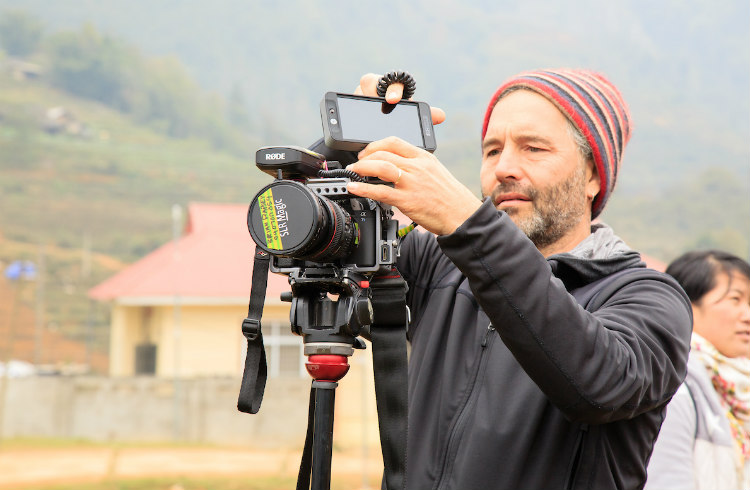
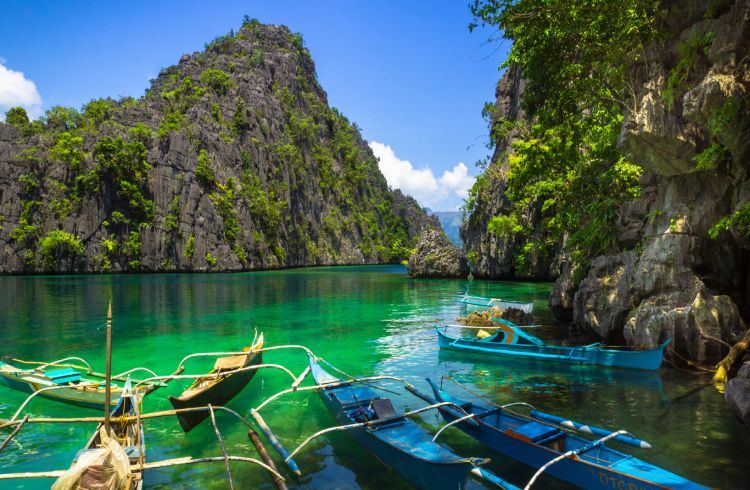
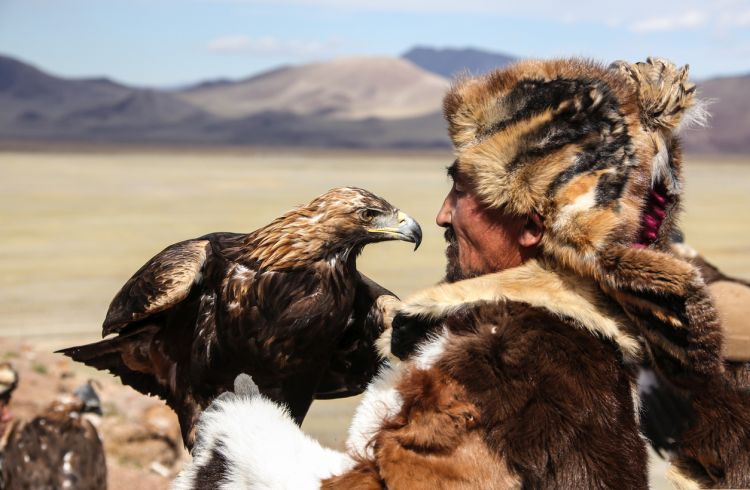
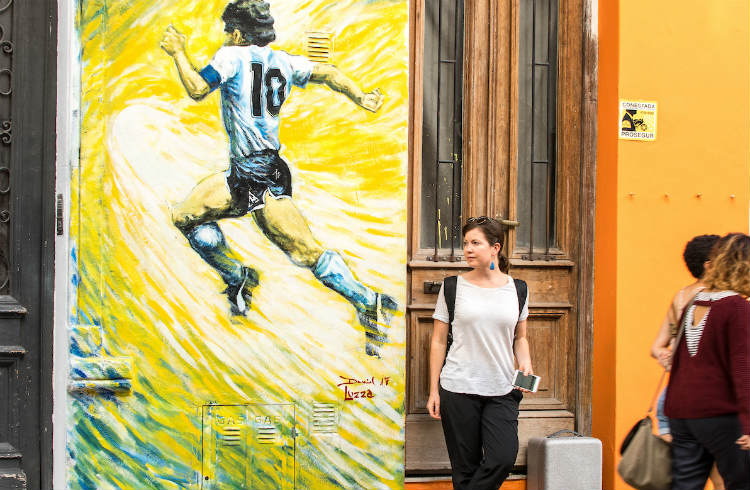
No Comments